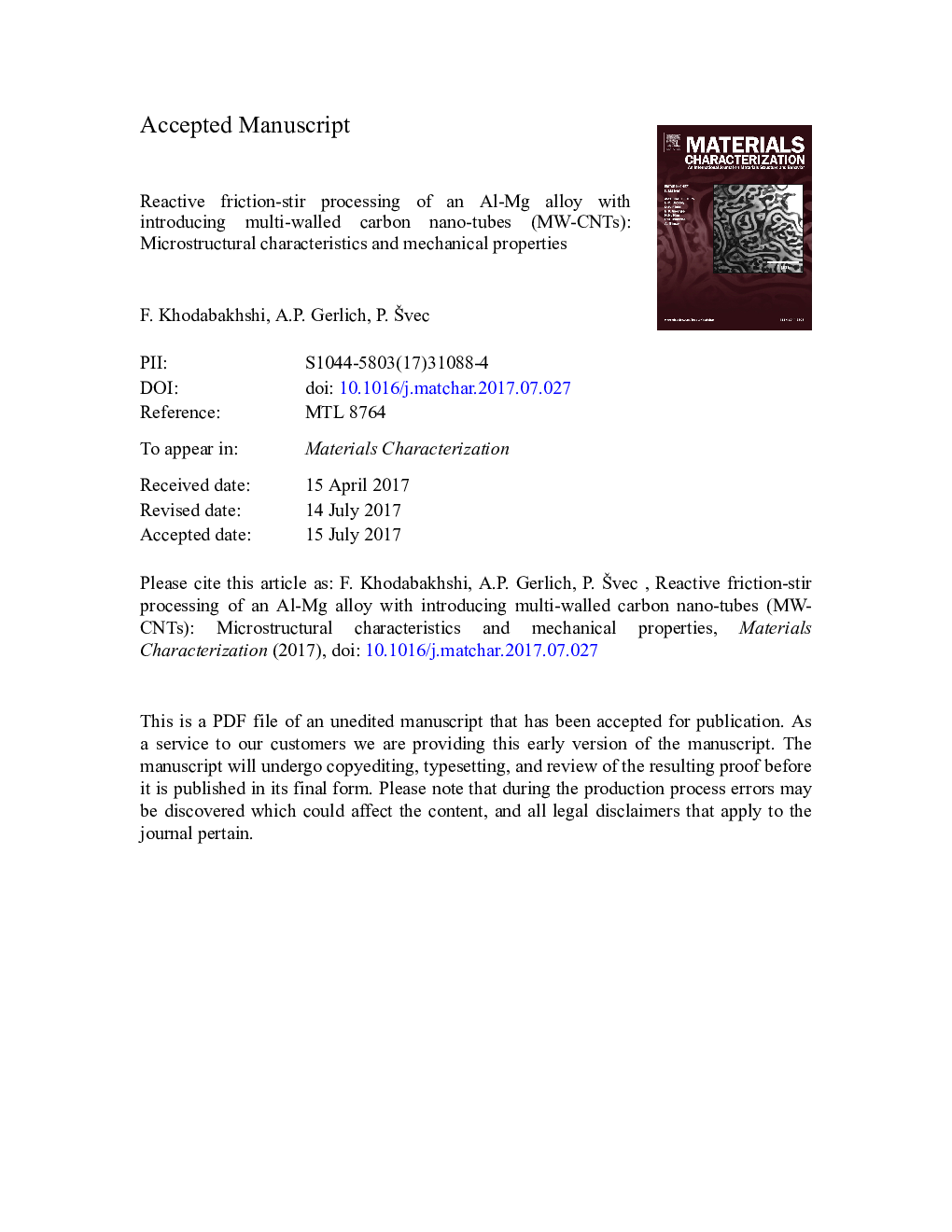| Article ID | Journal | Published Year | Pages | File Type |
|---|---|---|---|---|
| 5454603 | Materials Characterization | 2017 | 54 Pages |
Abstract
In this research, a fine-grained aluminum matrix hybrid nanocomposite was fabricated by reactive friction-stir processing (FSP) of an Al-Mg alloy containing about 2.5 vol% of embedded multi-walled carbon nano-tubes (MW-CNTs). It was shown that a homogenous distribution of reinforcement is attained throughout the metal matrix by applying parameters involving w = 1400 rpm and v = 50 mm/min during 5 cumulative FSP passes, where a maximum temperature of 510 °C is reached during processing. The survivability of these tangled MW-CNTs is diminished by the thermo-mechanical conditions imposed during FSP. Transmission electron microscopy analysis reveals that in situ solid-state chemical reactions occur at high temperature between the Al-Mg alloy and the nano-tubes during the severe plastic deformation. Consequently, aluminum carbide (Al4C3) and fullerene (C60) nano-phases with an average size of < 50 nm are formed. The structure of precipitates and grains are also changed due to the applied severe plastic deformation, which ultimately improves the indentation and tensile properties of the processed alloy. The formation of a fine-grained structure (with average size of ~ 1.5 μm) and in situ nucleated phases formed from remnant CNT fragments is accompanied by a significant increase in the yield strength (~ 140.7 MPa) and Vickers hardness (~ 95.6 HV). By employing experimental and theoretical models, a relationship between the microstructure and mechanical properties is established. The contributions of different mechanisms to strengthening are explained using prevailing theories based on the role of grain refinement and direct strengthening by Orowan looping, which were found to be more effective compared to the load bearing strength contribution.
Related Topics
Physical Sciences and Engineering
Materials Science
Materials Science (General)
Authors
F. Khodabakhshi, A.P. Gerlich, P. Å vec,
